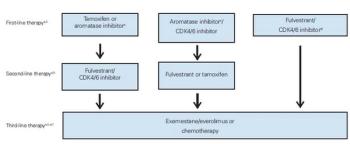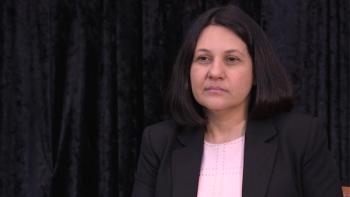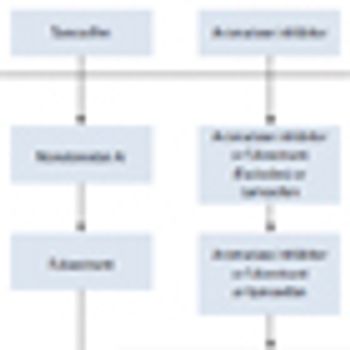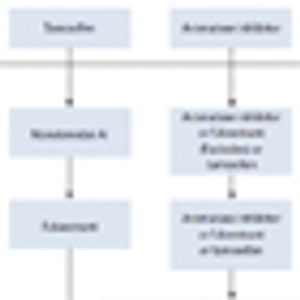
Here, we review the current use of and potential next directions for CDK4/6 inhibitors in the treatment of patients with HR-positive breast cancer.

Your AI-Trained Oncology Knowledge Connection!


Here, we review the current use of and potential next directions for CDK4/6 inhibitors in the treatment of patients with HR-positive breast cancer.

This video reviews controversies in the treatment of early-stage hormone receptor (HR)-positive breast cancer.

In this review, we will discuss multidisciplinary considerations in treating patients with neoadjuvant therapy and highlight areas of controversy and ongoing research.

The goals of care for patients with hormone receptor (HR)-positive advanced breast cancer include prolongation of disease-free and overall survival, amelioration of symptoms, and improvement in quality of life.

While the administration of neoadjuvant chemotherapy is recommended for women with locally advanced breast cancer, its use in the primary operable setting has been debated and is the focus of this review.

In the United States, approximately 180,000 women are diagnosed with breast cancer annually.

The first generation of clinical trials addressing adjuvant treatment questions in breast cancer has confirmed the important role of endocrine manipulations and chemotherapy, improving disease-free and overall survival.

Disease-free and overall survival have improved significantly for women diagnosed with early-stage breast cancer. At the same time, systemic therapy has only slightly enhanced long-term outcomes in advanced breast cancer, a disease that remains largely incurable. Several single-agent and combination chemotherapy approaches are available to women with hormone-insensitive advanced disease that may improve overall survival and progression-free survival, minimize symptoms and complications related to the disease, and improve overall quality of life. In addition, new cytotoxic and targeted agents have been recently introduced into practice and have improved both survival outcomes and quality of life. In this review, we will provide an update on commonly used chemotherapy-based regimens for the treatment of metastatic breast cancer, with a focus on tailoring therapy to different subtypes of the disease.

Improvements in early diagnosisand treatment of breast cancer overthe past few decades have clearlyreduced disease-related mortality. The2000 Oxford Overview published recentlyby the Early Breast Cancer Trialists’Cooperative Group (EBCTCG)highlights some of the widely practicableadjuvant drug treatments thatwere under investigation in the 1980s,and have substantially reduced 5-yearrecurrence rates as well as 15-yearmortality rates.[1] Optimal adjuvanthormone therapy is associated with asubstantial improvement of diseaseoutcomes in hormone receptor–positivewomen. Chemotherapy is alsoassociated with considerable benefitsin women with breast cancer, regardlessof age, stage, or hormone receptorstatus. However, chemotherapy isnot without risks. The treatment isassociated with many adverse eventsthat may significantly affect a patient’squality of life while she is receivingtreatment. Other effects may be longstanding,permanent, and, rarely, lifethreatening.

Breast cancer mortality has declinedin recent years due toadvances in screening and adjuvantsystemic therapy. Based on anoverall estimated risk of relapse foran individual woman, her age, comorbidities,and tumor characteristics,she may be offered adjuvant hormonetherapy, chemotherapy, or both.

Published: May 1st 2008 | Updated:

Published: November 15th 2008 | Updated:

Published: February 15th 2010 | Updated:

Published: October 1st 2007 | Updated:

Published: June 15th 2013 | Updated:

Published: November 16th 2015 | Updated: